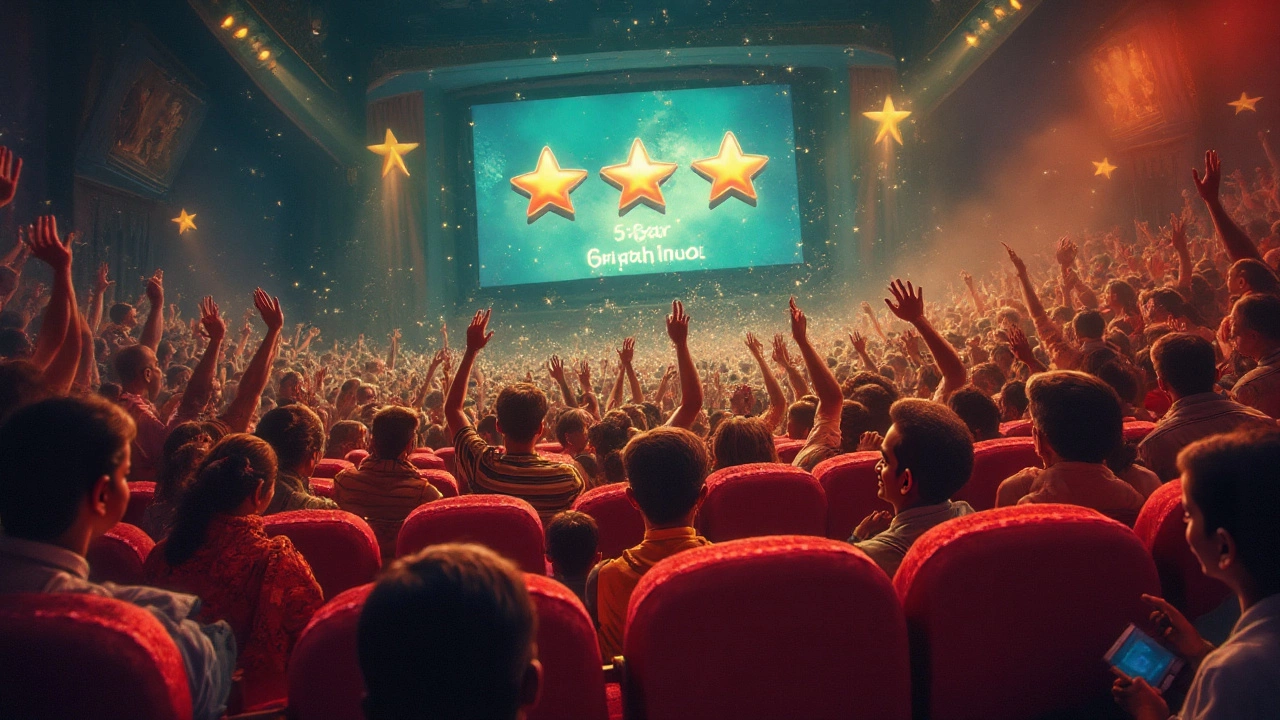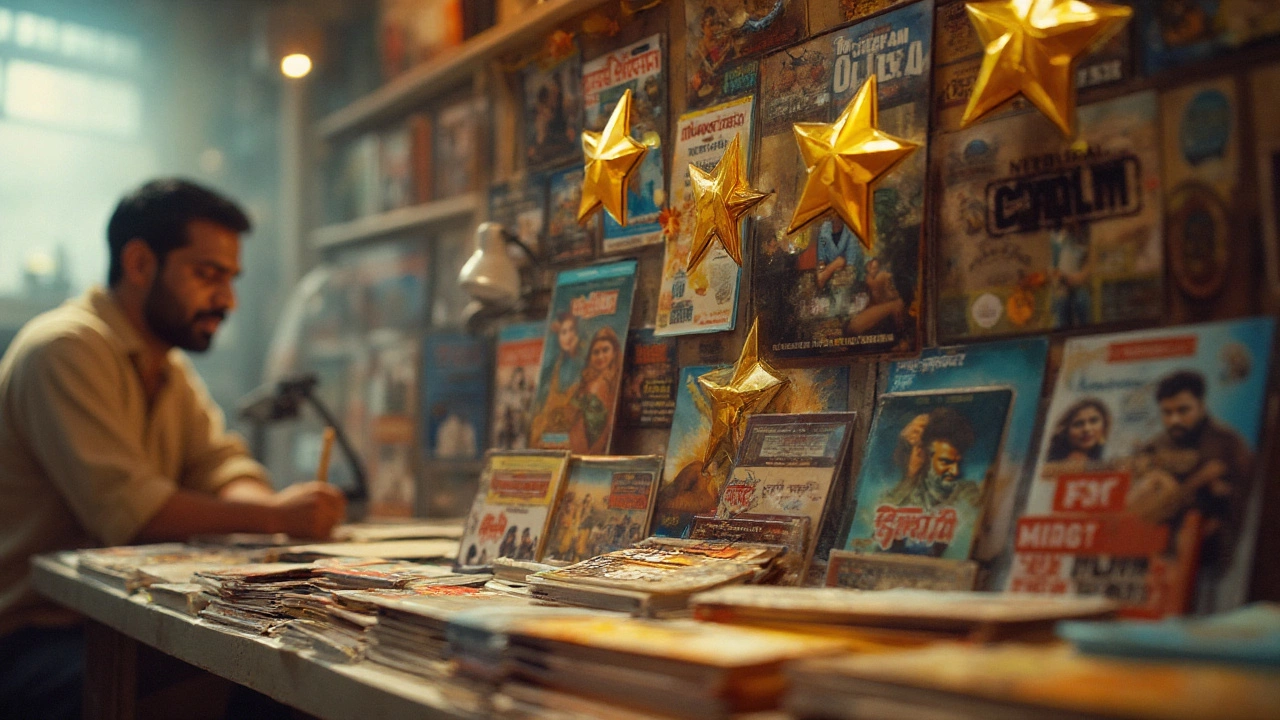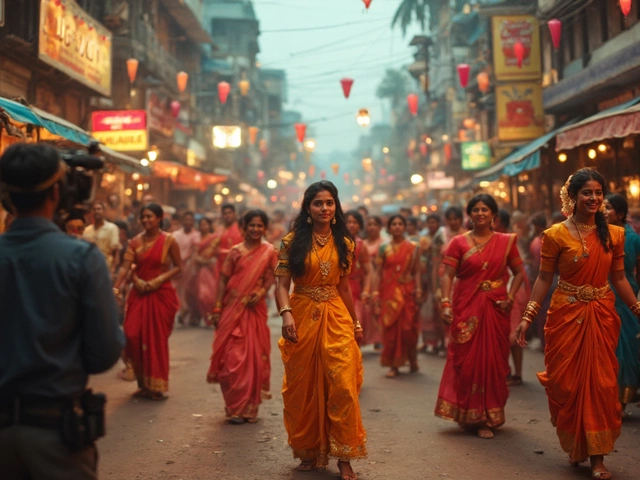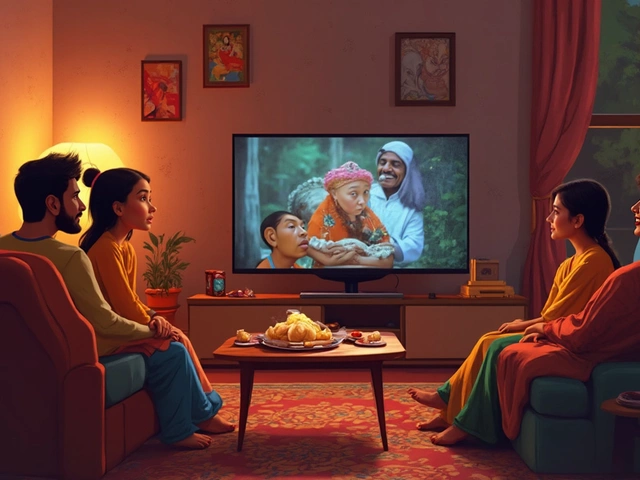
5-star movies are rare gems, the kinds of films people remember for years and talk about like treasured stories. But ask around, and you'll quickly run into the same confusion: what does a 5-star rating actually mean, and which movies have truly earned it? People argue endlessly online about their favorites—one person swears by "The Shawshank Redemption," someone else is ready to fight for "Kaithi," and there's always that friend who declares that nothing beats "Pather Panchali." All these opinions swirl around because, at the end of the day, deciding on a five-star movie has a lot more going on than just the numbers.
What Does a 5-Star Rating Really Mean?
Walk into any living room or scroll through any film site and you'll find the classic five-star scale. Seems simple, right? The reality is much messier. For some critics, five stars means "as close to perfect as you can get," the gold standard. Others use it more generously, handing out top marks to movies that just made them feel good—even if they wouldn't call it a masterpiece. Star ratings on platforms like IMDb, Rotten Tomatoes, or Letterboxd might look the same at first glance, but they each have their own quirks.
For instance, IMDb doesn’t have a “5-star” out of five system; instead, it’s out of 10, but lots of people automatically divide by two in their heads. Rotten Tomatoes offers percentages for critics (Tomatometer) and audience viewers. Letterboxd, beloved by film fans worldwide, does go up to 5 stars—with fractions allowed!
There’s another twist: sometimes you’ll see a movie average 4.8 or 4.9, but not crack the full 5.0. Why? Because as more people rate, the harder it is for a film to maintain a perfect score. On launch day, a new film might soar with a dozen perfect reviews, but add thousands of viewers, and suddenly, the tiniest disagreement drags that number down. You need a movie with near-universal appeal for it to last at 5 stars—and those are unicorns.
Also, it’s good to remember how personal bias plays into all of this. One reviewer’s 5-star is another’s 2-star, depending on mood, memory, or whether they watched it with a good group of friends or alone on a rainy Tuesday. That’s why it’s smart to look at both the numbers and what people actually say about a film—not just rely on shiny stars.
Movies That Have Scored the Coveted 5 Stars
Alright, so who are the real heavyweights here? There aren’t many films that consistently hold on to a pure 5-star average, especially once thousands of people have weighed in. But some movies are legends for a reason. On Letterboxd, for example, a handful of titles regularly float up near the top—think "The Godfather," "Parasite," "12 Angry Men," "Schindler’s List," and India’s own "Pather Panchali." If you poke through curated lists by respected film critics, you’ll also spot classics like "Citizen Kane," "Spirited Away," and "Satyajit Ray’s Charulata."
What about recent releases? Every so often, a new movie grabs enough hearts to land a clean run of maximum stars from early reviewers. Everything Everywhere All at Once had a moment in 2022 when it looked unstoppable, while RRR drew passionate fans in both India and abroad. But sustaining a 5-star rating is harder the longer a movie is in the wild. Audience numbers grow, tastes shift, and soon even 4.6 feels impressive.
It’s interesting to note that some movies considered “blockbusters” with huge box office numbers, like "Avatar" or "Avengers: Endgame," don’t always hit those five-star heights with critics—though they often land much higher audience scores. Sometimes, it’s the quieter, slower-burning films that critics rally around.
Let’s check out a quick comparison using actual user-aggregated scores from three popular rating sites as of 2025. These are films regularly marked as “5-star” candidates:
| Movie | Letterboxd | IMDb | Rotten Tomatoes (Critics / Audience) |
|---|---|---|---|
| The Godfather (1972) | 4.6/5 | 9.2/10 | 97% / 98% |
| Parasite (2019) | 4.6/5 | 8.5/10 | 99% / 90% |
| Pather Panchali (1955) | 4.5/5 | 8.5/10 | 96% / 93% |
| Schindler’s List (1993) | 4.4/5 | 9.0/10 | 98% / 97% |
| Spirited Away (2001) | 4.6/5 | 8.6/10 | 97% / 96% |
See what I mean? Even the most beloved movies slide just under a flawless 5, but they still dominate critical and fan discussions about movie perfection.

How Review Platforms Handle 5-Star Ratings
Every platform has its tricks and quirks when it comes to rating systems. On IMDb, for instance, the top 250 list is calculated using a weighted average, not just a simple mean. This helps them weed out ‘vote stuffing’—where diehard fans or haters pile on with high or low marks to sway the results. So even if a movie gets loads of 10/10 votes, they get looked at with a critical eye. IMDb also skews towards English-language and Hollywood films just because of user base size. That's why a film like "12th Fail" or "Super Deluxe" might be a cult classic elsewhere, but not crack that top-tier average on IMDb.
Letterboxd, on the other hand, is like the cool club for movie nerds. People use half-stars, write in-depth journals, and love to debate every little detail. A film with a 4.6 or 4.7 on Letterboxd is a proper heavyweight, especially if tens of thousands of people have weighed in. But since it’s a global platform, you’ll spot foreign and indie flicks right next to the big blockbusters—and sometimes, quirky regional hits sneak up the rankings for a while.
Rotten Tomatoes splits their scores into two: the Tomatometer for professional critics, and the Audience Score for regular viewers. Critics tend to be stricter, using their decades of experience to dissect every angle of a movie, while audiences go more on gut feeling. Once in a while, you’ll see a wild split, where critics love a movie (like "The Green Knight") but the audience is cold—or vice versa, like "Venom." But when both the Tomatometer and Audience Score are above 95%, you know you’re looking at an all-timer.
Some platforms also guard against review bombing, where trolls flood a movie with 1-star reviews for reasons that have nothing to do with the actual film. Whether it’s a controversial casting, or just a social media vendetta, it can mess with averages fast, so most big platforms will use algorithms to block obvious spam. That’s good news if you’re just looking for honest film opinions rather than internet drama.
Why Are 5-Star Movies So Rare?
Here’s the million dollar question: why don’t more movies sit at a perfect 5 stars? The first reason is numbers. Imagine you have a hundred film nerds in a room, all with totally different life experiences and taste in films, and you expect them all to agree perfectly? Not happening. Even consensus classics like "The Godfather" or "Citizen Kane" still have those people who found them boring, outdated, or just not what they expected. And that’s okay. Nobody can make something that pleases absolutely everyone.
There’s also cultural preferences to think about. A Bollywood mega-hit might notch up nearly flawless stars in India but go largely unnoticed or divisive in Europe or the US. On Letterboxd, you’ll spot trends where Korean cinema gets a run of glowing reviews after Bong Joon-ho’s "Parasite," or Miyazaki fans champion every Ghibli film into the stratosphere. Fandom has powerful ripple effects, but every fandom also breeds a few contrarian voters who love to knock down favorites.
Another reason is "hype backlash." When a movie blows up fast, some folks get curious just so they can go against the grain. It’s classic internet behavior—once something is declared "best ever," the backlash starts. And who hasn’t had the experience where a film their friends hyped up left them underwhelmed, simply because expectations were sky high?
So when you see a movie maintain anything even close to a 5-star average after tens or hundreds of thousands of ratings, that’s a small miracle. It speaks to the rare blend of great storytelling, technical skill, heart, and sometimes, perfect timing. These movies usually end up in conversations not just about films, but about cultural impact—the ones that everyone seems to agree are worth seeing at least once, if not a dozen times.

How to Discover Your Own 5-Star Movies
Alright, enough with the numbers—let’s talk about you. Because chasing down the mythical perfect movie can actually be way more fun than just copying top ten lists. Start by thinking about the movies that have really stuck with you. Not just what the critics loved, but the ones that made you feel something big—laughing so hard it hurt, or left you quiet for hours after. That’s your taste talking, and honestly, those are your true five-stars.
Try using review sites as launchpads, not bibles. On Letterboxd, you can follow people whose taste matches yours, or who argue their points in ways you find fun or eye-opening. On IMDb, glance at user reviews for recommendations, but don’t take any one comment as gospel. And when in doubt, peek at "staff picks" or "hidden gems" lists, because there’s always a surprise out there waiting to loop you in. Even smaller regional sites (for example, MyMovieRack in India) bring a different flavor and highlight titles you might never see trending globally.
Set up your own “Five Star” folder or list wherever you keep track of what you’ve watched. That way, when someone asks for recommendations, you’ve got your personal hall-of-fame ready to go. Or, flip it the other way: challenge yourself to check out five-star favorites from genres you usually skip, just to see what all the fuss is about. The worst that can happen? You end up with a good story to tell about why the internet was wrong (again).
And hey, even Whiskers, my cat, seems to pay attention when "The Lion King" is on. If that doesn’t mean 5 stars, I don’t know what does.





Write a comment